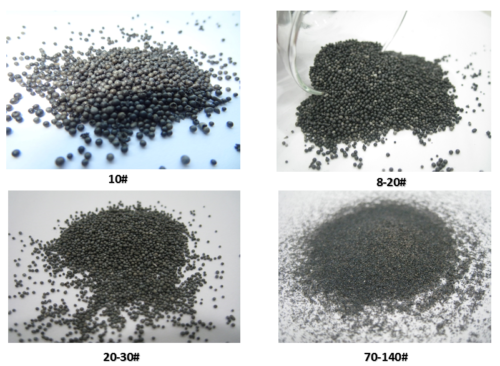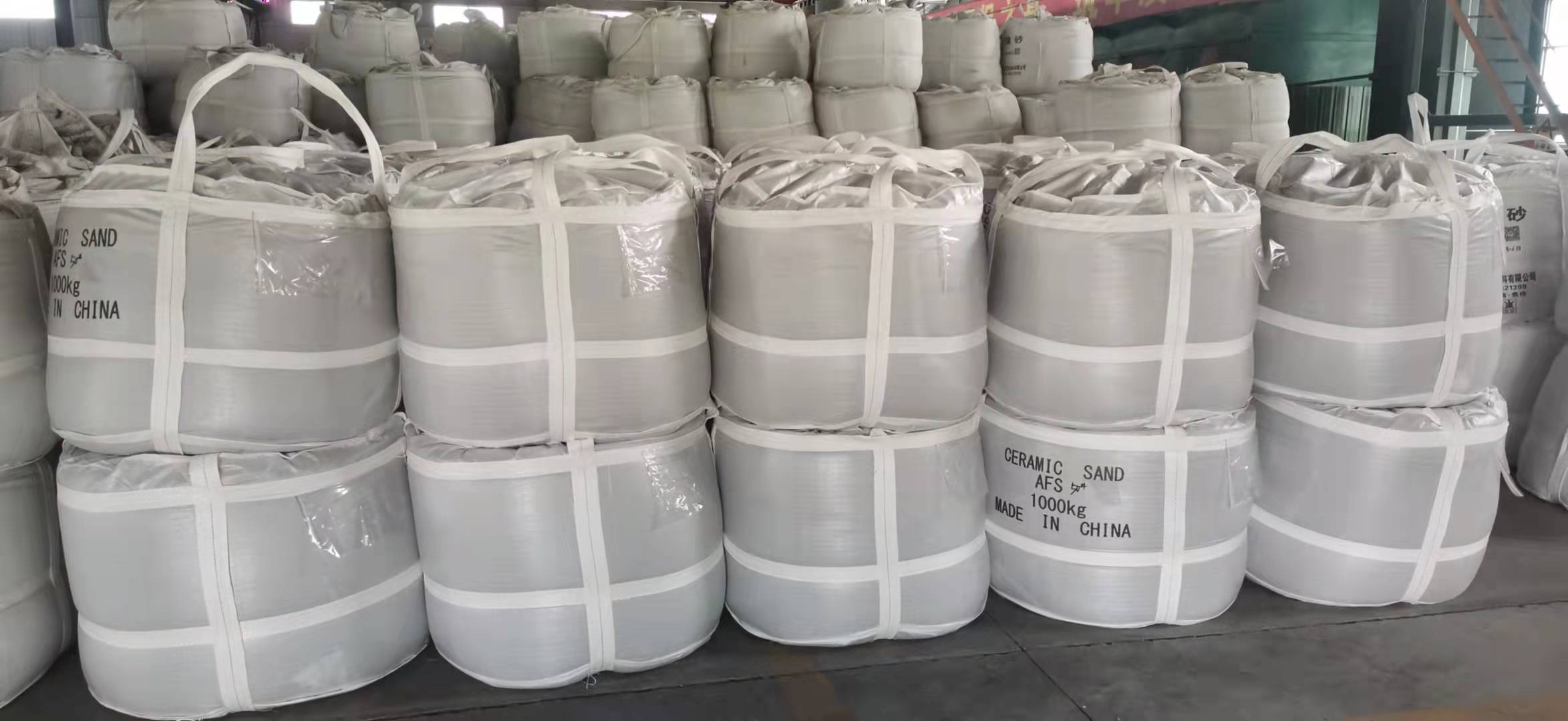Pre-coated Ceramic Foundry Sand is a premium, high-performance material used in the casting industry for making intricate and high-tolerance sand cores. It represents the combination of two advanced technologies:
Ceramic Foundry Sand: The base material, also known as “ceramic beads” or “spherical ceramic sand.” It is man-made from calcined bauxite (rich in Alumina, Al₂O₃) that is melted in an electric arc furnace and then blown or spun to form spherical, high-refractoriness grains.
Pre-coated: This refers to the process where each individual grain of this ceramic sand is uniformly coated with a layer of a thermosetting resin (most commonly a phenolic resin) and a catalyst before it ever arrives at the foundry.
In simple terms, it’s ready-to-use, resin-coated, spherical ceramic sand supplied to foundries specifically for making cores.
Key Characteristics and Advantages
This combination delivers superior properties compared to standard pre-coated sands (like those based on silica sand):
| Feature | Benefit |
|---|---|
| Spherical Shape & Low Surface Area | • Excellent flowability fills complex core boxes completely and evenly. • Lower resin requirement to achieve the same strength (reducing cost and gas generation). • High packing density creates dense, strong cores with good surface finish. |
| Very High Refractoriness (>1800°C / 3272°F) | • Resists burn-in/burn-on (metal sticking to the sand), especially critical for steel, alloy steel, and stainless steel casting. • Allows for casting of high-temperature metals without sand degradation. |
| Near-Zero Thermal Expansion | • Eliminates veining and cracking defects caused by the core expanding when contacted by molten metal. This is its single biggest advantage over silica sand. |
| High Thermal Stability & Inertness | • Chemically inert, preventing reactions with metal oxides that can cause fusing. • Excellent shakeout properties; the core breaks down easily after the metal solidifies, even from complex internal passages. |
| High Strength-to-Resin Ratio | • Cores can be made thinner and stronger simultaneously, enabling the production of more complex and delicate core geometries. |
Primary Applications
Pre-coated ceramic foundry sand is not used for every casting. It is a specialized solution for demanding applications where its benefits justify the higher cost. Its main use is in core-making for:
Automotive Industry: The quintessential application. Used for making complex, thin-walled cores for:
Engine blocks and cylinder heads (water jackets, oil galleries).
Intake and exhaust manifolds.
High-Alloy Steel Casting: Ideal for pumps, valves, turbocharger housings, and other components where silica sand would fail due to low refractoriness and high expansion.
Complex and Precision Castings: Used in aerospace, military, and heavy machinery for cores that require exceptional dimensional accuracy and stability.
Casting of Thick-Sectioned Iron and Steel: Where the extended contact time with molten metal would break down a silica sand core.


